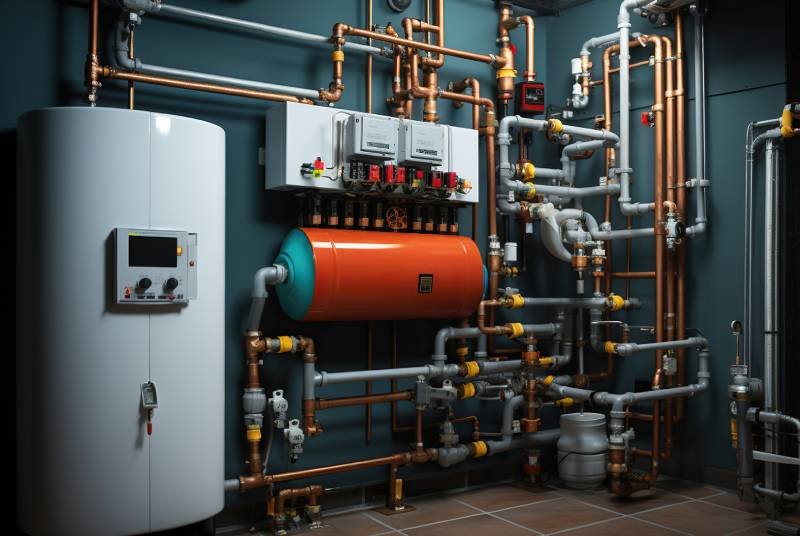Heating Systems: The Benefits of Boilers Compared to Furnaces

Boilers and furnaces serve the same purpose; they heat a home. For families who are sensitive to dry air, have limited space and want to cut their energy bill, boilers are the ideal choice. Who doesn’t want to save on their energy bill while contributing to a cleaner environment? The U.S. Department of Energy’s (DOE) consumer resource, Energy Saver, suggests the following, “If your furnace or boiler is old, worn out, inefficient, or significantly oversized, the simplest solution is to replace it with a modern high-efficiency model.”
At Crosstown Plumbing, we have one of the largest selections of heating system boilers for residential and commercial use in the Tri-State Area. In this article, our team will highlight the benefits of boilers compared to furnaces so you can make an informed choice on your new heating system.
Boilers: Require Less Space as They Can Be Wall-Mounted
Why do we state you need a boiler when you have limited space? Certain boiler models from Crosstown Plumbing can be wall-mounted, so they look neat and save space. We can also upgrade it to serve as a hot water supply. Furnaces heat air that flows through ducts to heat a building, and the ductwork takes up additional space. Boilers heat and distribute steam or hot water through pipes to radiators or radiant floor systems. The system is less noisy than a furnace, and the moist air does not dry out your family’s skin.
Have a Longer Lifespan Than Furnaces
Boilers and furnaces, on average, have a similar lifespan of 15 to 20 years if properly installed and maintained. However, because furnaces use ductwork to spread heat, the system might not last as long as a boiler and pipes. Newer boilers may also qualify for incentives and rebates offered through New Jersey’s clean energy program. It costs less over time to run a boiler than a furnace, and somewhere in the Crosstown Plumbing product line, there is a boiler that is the perfect fit for your home.
Easier to Maintain Due to Fewer Moving Parts
Boiler systems are easier to maintain because they have fewer moving parts than furnace systems. Furnaces are forced-air systems and need more motors and fans to move air around the ductwork, placing more stress on the parts. The heated steam or water from boilers simply moves through piping to its end destination. Although furnaces and boilers require an annual service, a furnace’s air filter must be replaced regularly, and with the right type of filter, to maintain good air quality in a home. Boilers don’t need filters, cutting down on maintenance and costs.
Powered by Natural Gas, Electricity or Oil
Crosstown Plumbing boiler models are run from gas, electricity or oil and can be integrated into almost any existing application. These newer, computer-controlled boilers regulate water temperature based on the outside air temperature, resulting in much higher efficiencies. Just imagine the cost savings each month! On top of saving money in the long run, your house will feel more comfortable, as boilers do not blow dust or dander through ductwork as furnaces do.
Contact our team at Crosstown Plumbing today if you want to discuss boilers or visit our website for more information: https://www.crosstownplumbing.com/








